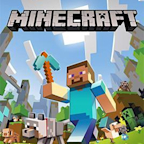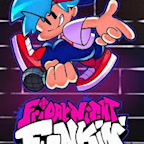Search results
Results From The WOW.Com Content Network
Genre (s) Game creation system, massively multiplayer online. Mode (s) Single-player, multi-player. Roblox ( / ˈroʊblɒks / ROH-bloks) is an online game platform and game creation system developed by Roblox Corporation that allows users to program and play games created by themselves or other users.
David Baszucki (/ b ə ˈ z uː k i /; born January 20, 1963), also known by his Roblox username builderman, or david.baszucki is a Canadian-born American entrepreneur, engineer, and software developer. He is best known as the co-founder and CEO of Roblox Corporation.
On Wikipedia and other sites running on MediaWiki, Special:Random can be used to access a random article in the main namespace; this feature is useful as a tool to generate a random article.
Roblox Corporation ( / ˈroʊblɒks / ROH-bloks) is an American video game developer based in San Mateo, California. Founded in 2004 by David Baszucki and Erik Cassel, the company is the developer of Roblox, which was released in 2006. As of December 31, 2023, the company employs over 2,400 people. [1]
A linear congruential generator ( LCG) is an algorithm that yields a sequence of pseudo-randomized numbers calculated with a discontinuous piecewise linear equation. The method represents one of the oldest and best-known pseudorandom number generator algorithms.
A CAPTCHA ( / ˈkæp.tʃə / KAP-chə) is a type of challenge–response test used in computing to determine whether the user is human in order to deter bot attacks and spam. [1] The term was coined in 2003 by Luis von Ahn, Manuel Blum, Nicholas J. Hopper, and John Langford. [2]
A pseudorandom number generator (PRNG), also known as a deterministic random bit generator (DRBG), is an algorithm for generating a sequence of numbers whose properties approximate the properties of sequences of random numbers.
A pseudo-noise code (PN code) or pseudo-random-noise code (PRN code) is one that has a spectrum similar to a random sequence of bits but is deterministically generated. The most commonly used sequences in direct-sequence spread spectrum systems are maximal length sequences, Gold codes, Kasami codes, and Barker codes. See also. Barker code; Gold ...
In computing, code generation is part of the process chain of a compiler and converts intermediate representation of source code into a form (e.g., machine code) that can be readily executed by the target system.
In statistics and computer software, a convolution random number generator is a pseudo-random number sampling method that can be used to generate random variates from certain classes of probability distribution.






















